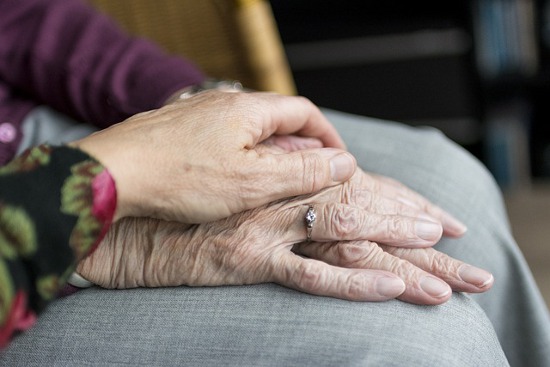Parkinson’s disease is a degenerative neurological system ailment that causes tremors, rigidity, and difficulties with coordination and balance. If you have a loved one with Parkinson’s disease, you may feel powerless or unclear about how to support them.
This blog will provide the guidance you need to help your loved ones struggling with parkinsonism.


What is Your Role as a Caregiver
Here are some suggestions on how you might assist them in managing their condition and improving their quality of life.
Learn More About Parkinson’s Disease
The more you learn about Parkinson’s disease, the more prepared you’ll be to comprehend your loved one’s symptoms, how their medicine works, and what to expect as the disease advances. Reputable organizations such as the Parkinson’s Foundation and the Michael J. Fox Foundation can provide credible information on Parkinson’s disease.
Pay Attention and Be Empathetic
Be there for them and to listen to their issues without passing judgment. You may support their sentiments by stating, “I can imagine it must be terrible,” or “I’m here for you.”
Assist Them in Staying Active
Encourage your loved one to be active by accompanying them on walks or in physical therapy sessions. You can also assist them in locating a Parkinson’s-specific fitness program, such as Rock Steady Boxing, in keeping them motivated and involved.
Help with Day-to-Day Activities
When Parkinson’s disease develops, your loved one may require assistance with daily duties such as cooking, cleaning, and dressing. Offer to help them with these duties or hire a caretaker. You may also modify their house to make daily activities easier and safer, such as installing grab bars or a higher toilet seat.
Make Contact with Other Caregivers
Caring for a loved one with Parkinson’s can be isolating, but you are not alone. You may also learn more about Parkinson’s disease and how to help your loved one by joining a support group or attending caregiving training.
How Can You Support Your Loved Ones During Different Stages Of PD
This summarizes the phases of Parkinson’s disease and how you may assist people at each stage.
First Stage
Symptoms of Parkinson’s disease are minor in the early stages and may go unnoticed by others. Patients may have tremors, rigidity, and trouble with fine motor movements. Exercise can improve strength, flexibility, and balance while slowing illness development. Urge patients to engage in safe and appropriate physical activity for their ability.
Second Stage
Symptoms become more obvious in stage two and affect both sides of the body. Patients may require assistance with certain everyday chores at this time.
Assist patients in changing their home environment to decrease the risk of falls and simplify everyday tasks. Urge patients to continue exercising, such as walking or light stretching.
Third Stage
Symptoms worsen in stage three; patients may lose balance and frequently fall. Everyday chores may become difficult, and patients may require assistance with tasks like dressing and grooming.
Assist patients in adapting their living environment to meet their changing requirements. Urge individuals to attend physical therapy to increase their mobility and strength.
The Fourth Stage
Patients at stage four require assistance with everyday tasks and may have trouble walking or standing independently. Individuals may also have severe tremors, stiffness, and other symptoms. Assist patients in changing their living environment to increase safety and accessibility.
Fifth Stage
Patients in stage five require round-the-clock care and may be unable to walk or stand without help. Severe tremors, rigidity, and other symptoms may occur in patients. Assist patients with all elements of their everyday lives. Collaborate with healthcare providers to create a treatment plan tailored to patients’ requirements and preferences.
Benefits of Opting for Assisted Living for Patients with Parkinsonism
Parkinson’s assisted living facilities provide a supportive and safe atmosphere and allow individuals to receive the treatment they require to manage their symptoms while remaining independent. The following are some advantages of assisted living for people with Parkinson’s.
Personnel That Has Been Trained
A qualified expert cares for those with Parkinson’s disease at assisted living facilities. These professionals have the expertise and skills to treat symptoms such as tremors, mobility issues, and medication management. They can also offer emotional support to residents and their relatives.
Medication Administration
Medication management is crucial in treating Parkinson’s symptoms and preventing consequences. Employees at assisted living facilities may ensure that patients take their medications on time and monitor any negative effects.
In House Physical Therapy Sessions
Physical therapists can work with residents to develop customized exercise programs that address specific issues.
Conclusion
In conclusion, Parkinson’s disease is a chronic and progressive condition affecting millions worldwide. It can be difficult to see a loved one have Parkinson’s disease, but there are ways to assist them in managing their symptoms. Assisted living facilities may be important for managing Parkinson’s disease symptoms and maintaining the quality of life.









